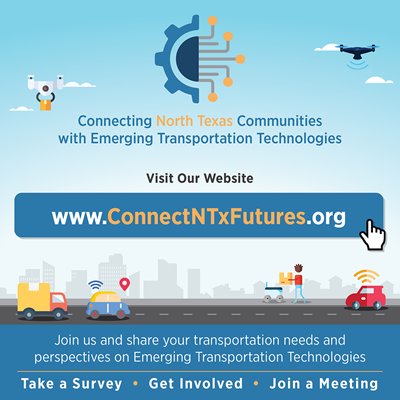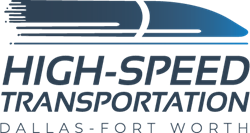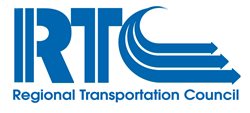Transit agencies ready to welcome you back
 The COVID-19 pandemic has shown how important public transportation is to keep people moving and communities connected. Since the beginning, buses and trains have provided transportation to healthcare professionals, first responders, service industry professionals, as well as other essential workers.
The COVID-19 pandemic has shown how important public transportation is to keep people moving and communities connected. Since the beginning, buses and trains have provided transportation to healthcare professionals, first responders, service industry professionals, as well as other essential workers.
While transit ridership has been significantly impacted by the pandemic-related changes in commuting, North Texas’ three major public transportation providers are ready to welcome riders back.
Dallas Area Rapid Transit (DART), the Denton County Transportation Authority (DCTA) and Trinity Metro have been following strict cleaning protocols since the pandemic began, and masks are still required on public transit vehicles. There are also transparent dividers between drivers and riders to promote health and safety. The region’s transit providers signed on to the American Public Transit Association’s “Health and Safety Commitments Program,” signifying their pledge to instill confidence in customers and to protect their health and safety.
To reassure the community even further, transit providers are working every day to keep their riders and employees safe and informed. Riders are asked to share the responsibility by doing things everyone has become accustomed to since March 2020.
- Wear a mask.
- Wash or sanitize your hands.
- Practice social distancing on board.
- Do not ride when you are ill.
Riders are encouraged to have their fare ready to go when boarding. They may pay through the DART-maintained GoPass app, which riders of all three transit agencies are able to use. Other options are Trinity Metro’s tap card for local daily, weekly, and monthly tickets and DART’s GoPass tap card.
NCTCOG launches program to help region prepare for vehicle technology
 The North Central Texas Council of Governments has launched a groundbreaking program that will help local governments plan for transportation-related technologies, including automated and connected vehicles.
The North Central Texas Council of Governments has launched a groundbreaking program that will help local governments plan for transportation-related technologies, including automated and connected vehicles.
The Automated Vehicles 2.0 (AV2.0) program will build on the region’s national leadership in automation and technology and recent public-private partnerships to support its growth and readiness.
The AV2.0 program seeks to make mobility planning resources available regionwide, help communities prepare for the implementation of transportation technology and look toward future uses of technology in transportation.
The $31 million program is divided into three parts: AV2.1, AV2.2 and AV2.3. With the recent launch of the $1 million “Connecting North Texas Communities with Emerging Transportation Technologies” study, also known as AV2.1, NCTCOG will provide short- and long-term planning support to local governments.
The second element, AV2.2 ($10 million) supports the costs for near-term technology deployments over the next two to four years. For the same timeframe, AV2.3 will make $20 million available for the implementation of regionally strategic investments.
The AV2.1 planning phase, led by Kittelson & Associates, will provide expertise to local governments
interested in preparing for and deploying the technologies. AV2.1 planning support is designed to build a broad base of agency and community understanding of opportunities and communicate ways emerging technologies can be used to address transportation challenges.
Visit www.ConnectNTXFutures.org to begin the effort including workshops, virtual public meetings, focus groups and other activities. Begin the effort by taking a short survey and registering for the first virtual public meeting, scheduled for 6 p.m. Aug. 24.
Apply for grants for Electric Vehicle Charging Stations by Sept. 9
The Texas Volkswagen Environmental Mitigation Program has funding available for the purchase and installation of new electric vehicle (EV) Level 2 charging equipment in a public place, workplace or multi-unit dwellings. Level 2 chargers can power 10-20 miles of battery range per hour.
Approximately $6 million of the $10.4 million allocated statewide for this Level 2 opportunity is still available. Applications will be accepted until September 9.
Grant recipients will be eligible for a reimbursement of up to $2,500 per charger installation. Up to 10 chargers can be included per application. Multiple applications may be submitted. Grants will be awarded on a first-come, first-served basis and may not exceed the following percentages of eligible costs:
More information and how to apply to the Texas Volkswagen Environmental Mitigation Program from TCEQ.
NCTCOG to host green infrastructure workshop
NCTCOG will host a free green transportation infrastructure Workshop 9:30 am to 2:30 pm August 24 through Zoom.
The workshop will provide an introduction of green infrastructure practices as they relate to transportation planning.
Environmental Protection Agency (EPA) and NCTCOG staff will explore tools and resources available to assist with green infrastructure project development and implementation.
The workshop also will feature examples and lessons learned from implemented green transportation infrastructure projects in the Dallas-Fort Worth region. Specific project topics will include permeable pavements, silva cells, LED lighting, solar lighting and low-impact stormwater drainage techniques.
This workshop is intended for professional planners and engineers, as well as any others with an interest in green solutions. Attendees will learn about innovative ways of incorporating green infrastructure into transportation projects and practical tools and resources to assist with this work. American Institute of Certified Planners Certification Maintenance (CM) credits will be offered (pending approval). For more information and registration, please visit www.nctcog.org/greeninfrastructure.
High-speed transportation study moving ahead
 The Dallas-Fort Worth High-Speed Transportation Connections Study is moving into its second phase of analysis.
The Dallas-Fort Worth High-Speed Transportation Connections Study is moving into its second phase of analysis.
The RTC recently approved the Dallas-Fort Worth High-Speed Transportation Connections Study’s Phase 1 recommendations. The current study is evaluating high-speed transportation alternatives (both alignments and technology) to modernize and enhance mobility between Dallas and Fort Worth. The RTC adopted a high‐speed corridor policy, which gave staff the go-ahead to proceed with the Phase 1 recommendations, coordinate with Federal partners on National Environmental Policy Act requirements, and integrate alignment and mode recommendations into other planning activities.
Having met the Phase 1 goals of identifying technology modes and alignments, two modes are proposed to be carried forward, high-speed rail and hyperloop. Forty-three alignments were studied in the 230-square-mile study area, and a route in the Interstate Highway 30 corridor with a few options for navigating major highway interchanges is recommended to move into Phase 2.
The addition of high-speed transportation alternatives would accommodate the current growth and provide residents with the safe, reliable, and efficient travel they expect in the Dallas-Fort Worth area. The final recommended solution will connect to local transportation systems and could link the region to future high-speed services.
NCTCOG’s Metropolitan Transportation Plan, Mobility 2045, includes high-speed transportation between Dallas and Fort Worth as a future transportation choice, to accommodate an expected population exceeding 11 million by 2045.
The purpose of Phase 2 is to gain federal environmental approval of the preferred alignment and technology for the project. This includes conceptual and preliminary engineering, financial and project management plans. The National Environmental Policy Act requires detailed studies of all aspects of the study area, including all potential social, biological, and cultural impacts, both positive and adverse.
Four open houses in the study area are currently being planned for late September and October to provide an overview of Phase 1 recommendations. For more information visit: www.nctcog.org/dfw-hstcs.
Public input sought on transportation plans
 Dallas Fort-Worth residents can review and comment on several transportation planning efforts taking place across the region beginning August 9. Residents can submit comments through September 7 at www.nctcog.org/input.
Dallas Fort-Worth residents can review and comment on several transportation planning efforts taking place across the region beginning August 9. Residents can submit comments through September 7 at www.nctcog.org/input.
NCTCOG staff will present the details of the Strategic Plan for Downtown Wylie completed in May. NCTCOG staff provided technical support to the city through the Unified Planning Working Program. The strategic plan outlines infrastructure and policy recommendations promoting bicycle and pedestrian infrastructure as well as economic development.
Staff will also present details on Map Your Experience, the Transportation Department's online public input mapping tool. Comments from the tool will be used to guide update efforts of Mobility 2045.
Staff will also introduce details on this year’s state of the region report, Progress North Texas: Transportation For All. Progress North Texas highlights challenges, opportunities, and developments our region’s transportation system has faced in the last year and how we are communicating these changes with residents and partners.
Electric vehicles are becoming more popular as an alternative to traditional automobiles. Staff will present information examining various funding opportunities for EV charging station infrastructure and promote applications for the upcoming funding deadlines.
Additionally, staff will give an Engine off North Texas update. This program focuses on reducing unnecessary idling from heavy duty trucks by providing idling awareness and educational materials to drivers and local governments. Presentations will include information on alternatives to idling and assist local governments in implementing and enforcing idle reduction policies within their jurisdictions. Finally, staff will provide an overview of the mobility plan administrative revisions. Information on the Regional Smoking Vehicle Program and vehicle incentive opportunities will also be highlighted. An audio recording of the presentations will be posted at www.nctcog.org/input.
-- Images provided by NCTCOG and Getty Images